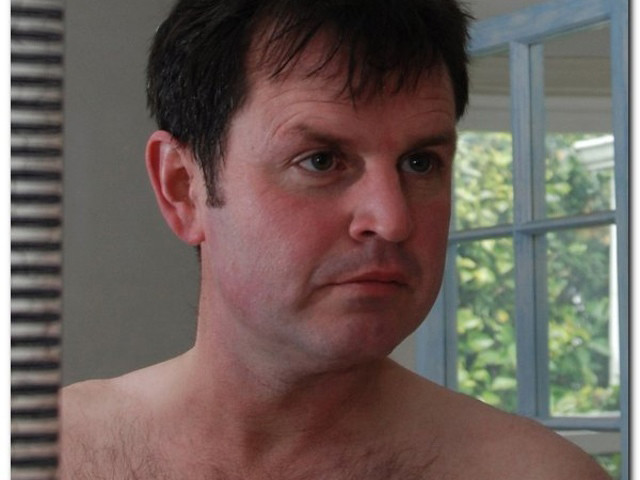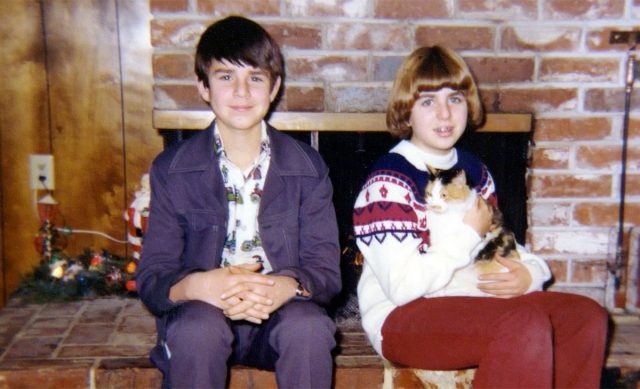
A man’s descent into mental illness is documented by his sister in That Way Madness Lies…
THAT WAY MADNESS LIES… (Sandra Luckow, 2018)
Cinema Village
22 East 12th St. between University Pl. & Fifth Ave.
Opens Friday, December 14
212-529-6799
www.madnessthemovie.com
www.cinemavillage.com
 Filmmaker Sandra Luckow documents her brother’s battle with mental illness in the very personal That Way Madness Lies… “What happened to Duanne? And why didn’t we see this coming?” she asks. Luckow, who for her Yale thesis in 1986 made Sharp Edges, about unknown fifteen-year-old figure skater Tonya Harding, follows the sad tale of her brother, Duanne, as he spirals out of control, trapped in a system that is not built to help him. “Our eccentricity defined who we were, but where was the line between creativity and crazy?” Sandra says about Duanne, who had his own very successful business as a car restorer — he was considered a magician at it — before his troubled mind destroys his ability to function. He experiences manic episodes, falls for conspiracy theories, and believes he is destined to marry an internet self-help guru. Duanne was also an amateur filmmaker himself, and Sandra includes footage from short movies Duanne made when he was a kid, as well as his recordings from his stays in Oregon State Hospital, where One Flew Over the Cuckoo’s Nest was filmed. Sandra and Duanne’s elderly parents, the mother a dollhouse builder, the father also an auto specialist, are at a loss as to what to do as Sandra shares information about Duanne’s exploits, which grow ever more confounding and threatening, particularly as he sides with scam artists instead of his family. “My big mistake has been trying to circumvent the suffering,” Sandra tells a lawyer of her attempts to help her brother.
Filmmaker Sandra Luckow documents her brother’s battle with mental illness in the very personal That Way Madness Lies… “What happened to Duanne? And why didn’t we see this coming?” she asks. Luckow, who for her Yale thesis in 1986 made Sharp Edges, about unknown fifteen-year-old figure skater Tonya Harding, follows the sad tale of her brother, Duanne, as he spirals out of control, trapped in a system that is not built to help him. “Our eccentricity defined who we were, but where was the line between creativity and crazy?” Sandra says about Duanne, who had his own very successful business as a car restorer — he was considered a magician at it — before his troubled mind destroys his ability to function. He experiences manic episodes, falls for conspiracy theories, and believes he is destined to marry an internet self-help guru. Duanne was also an amateur filmmaker himself, and Sandra includes footage from short movies Duanne made when he was a kid, as well as his recordings from his stays in Oregon State Hospital, where One Flew Over the Cuckoo’s Nest was filmed. Sandra and Duanne’s elderly parents, the mother a dollhouse builder, the father also an auto specialist, are at a loss as to what to do as Sandra shares information about Duanne’s exploits, which grow ever more confounding and threatening, particularly as he sides with scam artists instead of his family. “My big mistake has been trying to circumvent the suffering,” Sandra tells a lawyer of her attempts to help her brother.

Duanne and Sandra Luckow are seen in happier times in That Way Madness Lies…
Nominated for the Women Film Critics Circle’s Courage in Filmmaking award, That Way Madness Lies… is indeed a brave work by Luckow, who did not intend to spend so much time in front of the camera herself. She fights a broken system, thwarted again and again by government agencies and the courts. But she sees the film as a tool for change. “The last thing I ever wanted to do was to turn the camera on my own family and expose the vulnerability, suffering, and loss that took place,” she has said. “However, I believe lives depend on this film having been made and seen. People will be able to understand why it is almost impossible to help the most vulnerable in our society.” She was inspired to make the documentary after asking Duanne to record his experiences in Oregon State Hospital and seeing the footage, which devastated her personally but also made her realize that the story was bigger than just her family. It’s a heart-wrenching tale, one that exposes a deep crack in America’s treatment of the mentally ill.